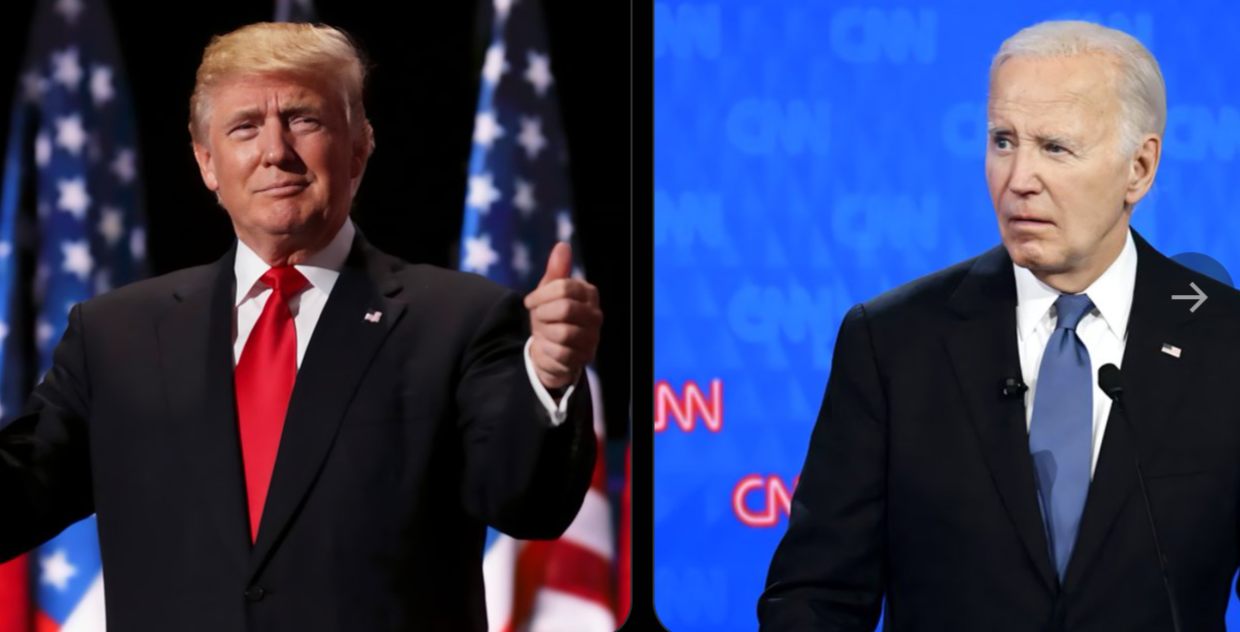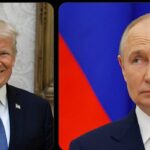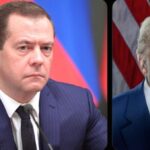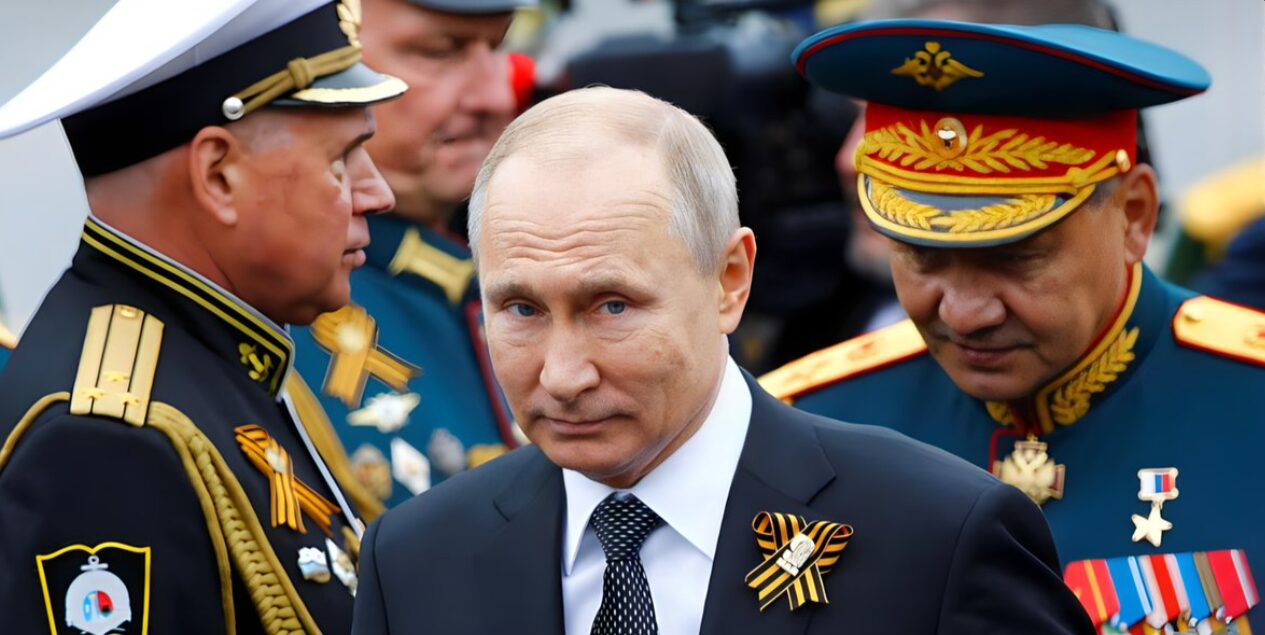Trump called Biden “stupid” for approving long-range strikes on Russia
In a fiery response that is drawing attention both in the U.S. and around the world, former U.S. President Donald Trump has called current President Joe Biden “stupid” for approving long-range strikes on Russian territory in the ongoing conflict between Russia and Ukraine. The remarks come amid escalating tensions in the region and continued debates over U.S. involvement in the war. Trump’s criticism highlights the stark differences between his administration’s foreign policy approach and Biden’s handling of the conflict, further intensifying the political discourse on how best to respond to the ongoing war in Ukraine. In this blog post, we will delve into the background of Trump’s remarks, the implications of Biden’s military decisions, and the broader geopolitical context of the conflict.
The Context Behind Trump’s Remarks
Donald Trump’s recent criticism of Joe Biden’s decision to authorize long-range strikes on Russian soil is rooted in the broader political and military discourse surrounding the war in Ukraine. The United States has played a key role in supporting Ukraine with military aid, including weapons, intelligence, and financial assistance, in an effort to push back against Russia’s invasion. However, Biden’s decision to approve long-range strikes, which include weapons capable of targeting Russian territory, has raised concerns about escalating the conflict further.
- The Escalation of the Ukraine War
The war in Ukraine, which began in February 2022 with Russia’s full-scale invasion, has seen heavy casualties, widespread destruction, and a massive displacement of civilians. Ukraine has managed to hold its ground with the support of Western nations, including the U.S. However, the continued supply of advanced weaponry has led to a growing debate about how far the West should go in assisting Ukraine without directly provoking Russia, a nuclear-armed state.Long-range strikes on Russian territory mark a significant escalation in the conflict. While the U.S. has supplied Ukraine with sophisticated weapons systems, including missiles, drones, and fighter jets, Biden’s decision to approve the use of long-range strikes is seen by some as a move that risks further intensifying hostilities and potentially drawing NATO into the conflict.
- Trump’s Foreign Policy Track Record
Donald Trump’s foreign policy approach during his presidency was characterized by an “America First” doctrine, which often included reducing U.S. military involvement in overseas conflicts and taking a more isolationist stance. Trump’s handling of the Ukraine crisis during his presidency was also notably different from Biden’s, as he advocated for a more direct and transactional approach with both Russia and Ukraine. Trump’s criticism of Biden’s military actions is consistent with his past rhetoric, where he often framed his policies as less interventionist and more focused on protecting U.S. interests. - Biden’s Approach to Ukraine
President Joe Biden, in contrast, has emphasized a more traditional internationalist approach, vowing to support Ukraine in its fight against Russian aggression and to maintain strong ties with NATO allies. Biden’s decision to approve long-range strikes on Russia is part of a broader strategy to maintain military pressure on Russia while avoiding direct military confrontation with Russian forces. However, this decision has been met with mixed reactions, particularly from those who fear it could provoke a dangerous escalation in the conflict.
Trump’s Criticism: “Stupid” and Dangerous?
Trump’s statement calling Biden “stupid” for approving long-range strikes is not an isolated comment but rather part of a broader narrative questioning Biden’s handling of the war. Trump, who has repeatedly criticized the Biden administration’s foreign policy decisions, views Biden’s actions in Ukraine as reckless and potentially disastrous.
- Concerns About Escalation
One of Trump’s main criticisms revolves around the risk of escalation. While the U.S. has been supporting Ukraine with weapons and intelligence, Trump argues that direct strikes on Russian soil could escalate the situation into a broader war, potentially involving NATO forces and possibly triggering a wider international conflict. Given Russia’s nuclear capabilities, Trump has expressed concern that pushing Russia into a corner could lead to catastrophic consequences, both for the region and the world. - Trump’s “America First” Doctrine
Trump has long advocated for a foreign policy focused on America’s interests rather than global interventions. In his view, the U.S. should prioritize its own national security and economic stability over entanglement in foreign conflicts. He has repeatedly argued that U.S. involvement in Ukraine should be limited and that any military support should be carefully calibrated to avoid further escalating tensions with Russia. By approving long-range strikes, Biden’s approach runs counter to Trump’s belief in reducing U.S. military involvement abroad and avoiding unnecessary conflicts. - Political Rhetoric and Strategic Messaging
The choice of words, calling Biden’s actions “stupid,” is in line with Trump’s often blunt and inflammatory style. This criticism not only serves as a personal attack on Biden but also positions Trump as a strong alternative for those who feel the current administration’s policies are weakening America’s position in the world. By framing Biden’s decisions as reckless, Trump aims to reinforce his image as a leader who would be more cautious and pragmatic in handling foreign affairs, particularly in relation to Russia and the Ukraine conflict.
The Geopolitical Implications of Long-Range Strikes on Russia
Biden’s decision to approve long-range strikes on Russian territory represents a significant shift in U.S. policy and could have far-reaching geopolitical consequences. While the strikes are meant to support Ukraine’s defense against Russian forces, they also risk further escalating an already volatile situation.
- NATO and U.S.-Russia Relations
The approval of long-range strikes has already strained U.S.-Russia relations further. Russia has warned that any strikes targeting its territory could lead to a broader war, potentially drawing NATO into the conflict. Given that NATO is a defensive alliance, any attack on Russian soil could be seen as an act of aggression, which might trigger Article 5, the collective defense clause of NATO, and potentially involve the U.S. and other NATO countries in direct military action against Russia. - Russia’s Military Response
The prospect of long-range strikes against Russian territory could provoke a strong military response from Russia. While Russia has thus far refrained from directly attacking NATO countries, the increased pressure on its territory may prompt more aggressive tactics, including cyberattacks, missile strikes, or even the use of nuclear rhetoric. This escalatory cycle risks pushing the conflict beyond Ukraine’s borders and into the broader region, with unpredictable consequences. - China’s Role and International Reactions
China, which has been watching the conflict closely, is likely to use the situation to further its own geopolitical goals. Beijing has already voiced its concerns about U.S. involvement in Ukraine, calling for restraint and advocating for diplomatic solutions. If the U.S. continues to escalate its involvement, China may strengthen its ties with Russia, creating a more challenging environment for U.S. foreign policy in both Eastern Europe and Asia.
Conclusion
Trump’s harsh criticism of Biden’s decision to approve long-range strikes on Russian territory underscores the deep political divide in the U.S. over how best to respond to the ongoing war in Ukraine. While Biden’s administration continues to support Ukraine’s defense against Russian aggression, Trump’s “America First” approach advocates for a more cautious, less interventionist policy. The geopolitical consequences of Biden’s decision are still unfolding, but the stakes are higher than ever as the conflict continues to escalate.
As both U.S. leaders and global powers assess the situation, the world watches closely to see how the war in Ukraine will evolve—and whether a path to peace or further escalation will emerge. Trump’s criticism is a reminder of the high-stakes nature of this conflict and the differing approaches that shape U.S. foreign policy in the 21st century.

















Post Comment